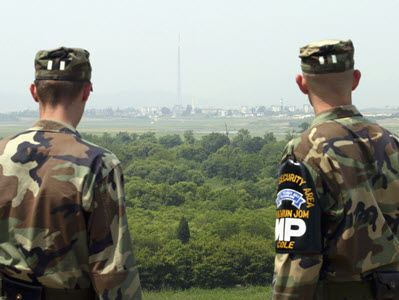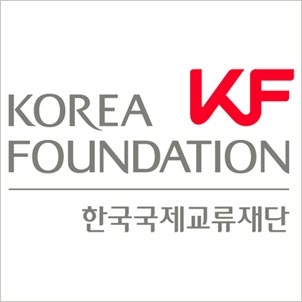An End-of-War Declaration on the Korean Peninsula
A Risk Worth Taking
NBR reached out to several experts in its network to gather perspectives on the politics and strategy of an end-of-war declaration on the Korean Peninsula. The concept of an end-of-war declaration has become a polarizing topic in both Washington and Seoul. This Q&A with Frank Aum is part of the roundtable “The Politics and Strategy of an End-of-War Declaration on the Korean Peninsula” that aims to clarify the key issues in the debate and offer policy options for congressional action.
Under what circumstances would an end-of-war declaration be in the interest of the United States and the Republic of Korea (ROK)?
An end-of-war declaration would be in the interests of the United States if it helps advance the goals of denuclearizing the Democratic People’s Republic of Korea (DPRK), enhancing our relationship with the ROK, and strengthening our regional security posture. Right now, I think the Biden administration views a declaration as only advancing the second goal. The current Moon Jae-in administration strongly supports it, while North Korea has expressed ambivalence. Many critics have voiced concern that a declaration, while not binding, could heighten calls for the withdrawal of U.S. troops from the Korean Peninsula.
An end-of-war declaration would work best if it is carefully coordinated among all three parties and helps launch a new peace process that includes immediate confidence-building measures on both sides. If it doesn’t include DPRK buy-in and is not accompanied by a process and immediate bilateral concessions, it would fizzle out quickly.
How might a declaration advance the peace process on the Korean Peninsula? How should parties sequence an end-of-war declaration with components of a peace regime (including the issue of denuclearization)?
The Moon administration envisions an end-of-war declaration as a paradigm-shifting catalyst that could reframe U.S.-DPRK relations, inter-Korean relations, and the environment on the Korean Peninsula from war, hostility, deterrence, and risk aversion to peace, cooperation, engagement, and risk taking. Since a declaration is simply a nonbinding political statement with no legal impact on the Armistice Agreement, the UN Command, or the U.S.-ROK alliance, Seoul believes it could kick-start a more comprehensive peace process that ends with a formal peace agreement.
An end-of-war declaration could come immediately or as part of an interim agreement that includes some denuclearization and sanctions-relief measures. But given its purpose as a catalyst, it needs to come on the early side. Everyone recognizes that a declaration is, without action, just words on paper. But Moon is betting that even words can instill the environment with momentum.
What are the primary risks and opportunities surrounding a declaration?
An immediate concern is that people have different understandings of its significance. Some see a declaration as a nonbinding political statement, while others conflate it with a formal peace treaty that would dissolve the Armistice Agreement. This exact confusion led to an awkward moment between Presidents Roh Moo-hyun and George W. Bush during an APEC press conference in 2007. Roh tried to get Bush to publicly express support for an end-of-war declaration, while Bush insisted that a peace treaty could only come after denuclearization.
Even if everyone is on the same page about an end-of-war declaration as a simple statement, there are still people who believe it has either limited value or, even worse, the potential to undermine U.S. interests. Some analysts argue that a nonbinding document has no value, which ironically aligns directly with North Korea’s position. Others assert that while a declaration has no tangible benefit for the United States, it could have negative implications for the Armistice Agreement (including related issues such as sovereignty of the Northwest Islands and the location of the Northern Limit Line), the UN Command, and rear bases in Japan. They also worry that it might invite bipartisan condemnation from the U.S. Senate, where several senators maintain a hard-line position on North Korea.
On the optimistic side, if Washington assumes some of the aforementioned risks, while guarding against others, then a declaration could actually help improve U.S.-ROK relations, give Seoul a stronger sense of agency over its future, and even advance U.S. denuclearization goals. For example, the declaration could be drafted so that it has no binding effect on the Armistice Agreement or the UN Command until a formal peace settlement is achieved. Given the failed track record of other previous risk-averse policies that rely on deterrence, pressure, isolation, and strategic patience, an end-of-war declaration could be a risk worth taking.
How might the U.S. Congress play a meaningful role in shaping the terms of a declaration or driving a peace process during the Biden administration?
If reports are accurate, the United States is doing the right thing by working with South Korea on the text of a draft end-of-war declaration. Of course, this measure might be more alliance management and throwing Seoul a bone than a sincere intent to make such a declaration in the near future. But even the process of thinking through the language and the legal implications and preparing a draft declaration puts Washington in a stronger negotiating position.
The president has the authority to drive foreign policy and doesn’t need congressional approval for an end-of-war declaration, which is not a treaty. However, Congress can exercise its oversight function and use public hearings and private briefings to seek updates and assessments from the State Department on the declaration and the overall peace process.
Frank Aum is the senior expert on Northeast Asia at the U.S. Institute of Peace. From 2010 to 2017, he worked at the Department of Defense. During this time, he advised four secretaries of defense on issues related to Northeast Asia and the Korean Peninsula. Mr. Aum also served as head of delegation for working-level negotiations with the Republic of Korea on U.S.-ROK alliance matters and received the Secretary of Defense Medal for Outstanding Public Service.
This interview was conducted by Joshua Nezam, who is director of congressional affairs at NBR.
Read other expert interviews from the roundtable “The Politics and Strategy of an End-of-War Declaration on the Korean Peninsula“



 The Politics and Strategy of an End-of-War Declaration
The Politics and Strategy of an End-of-War Declaration
